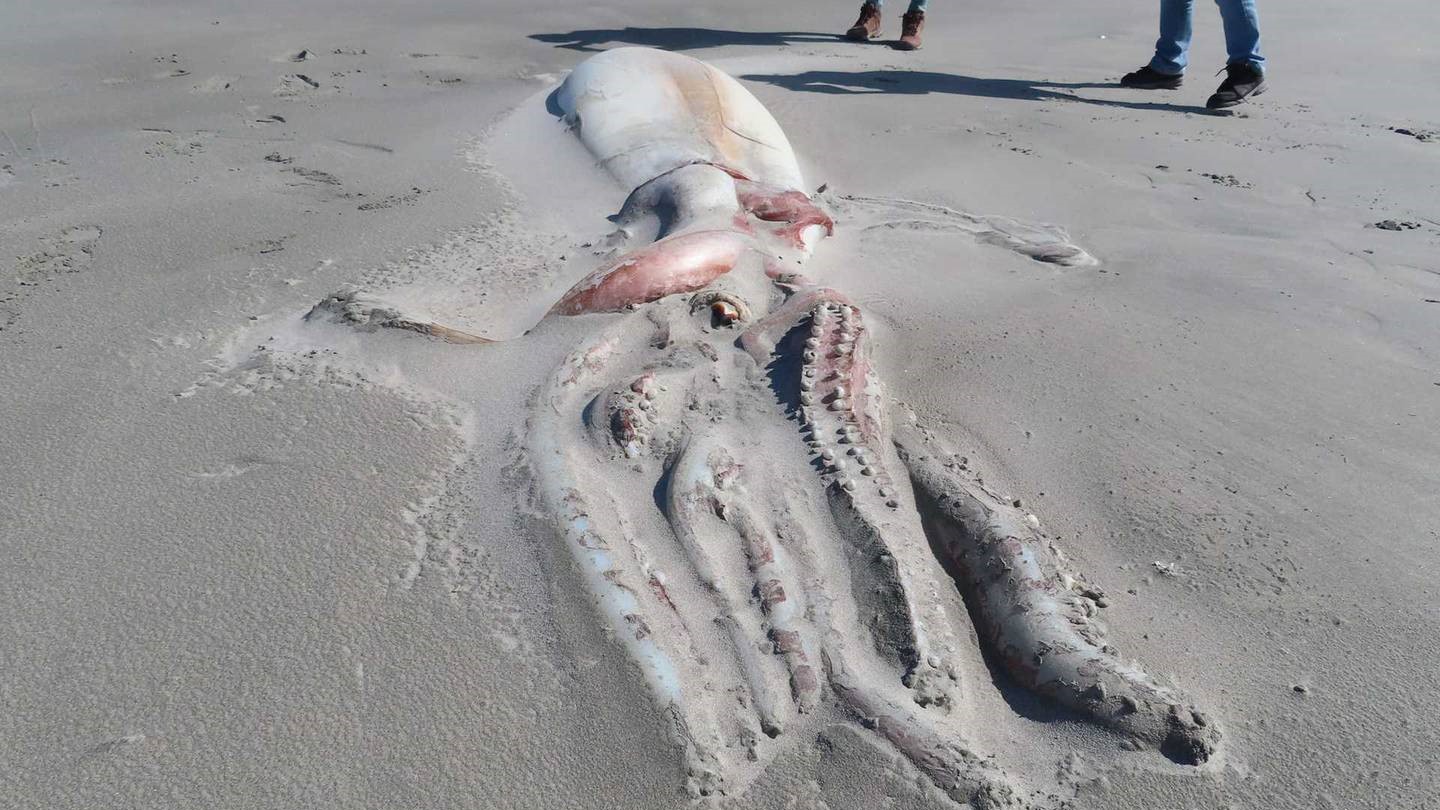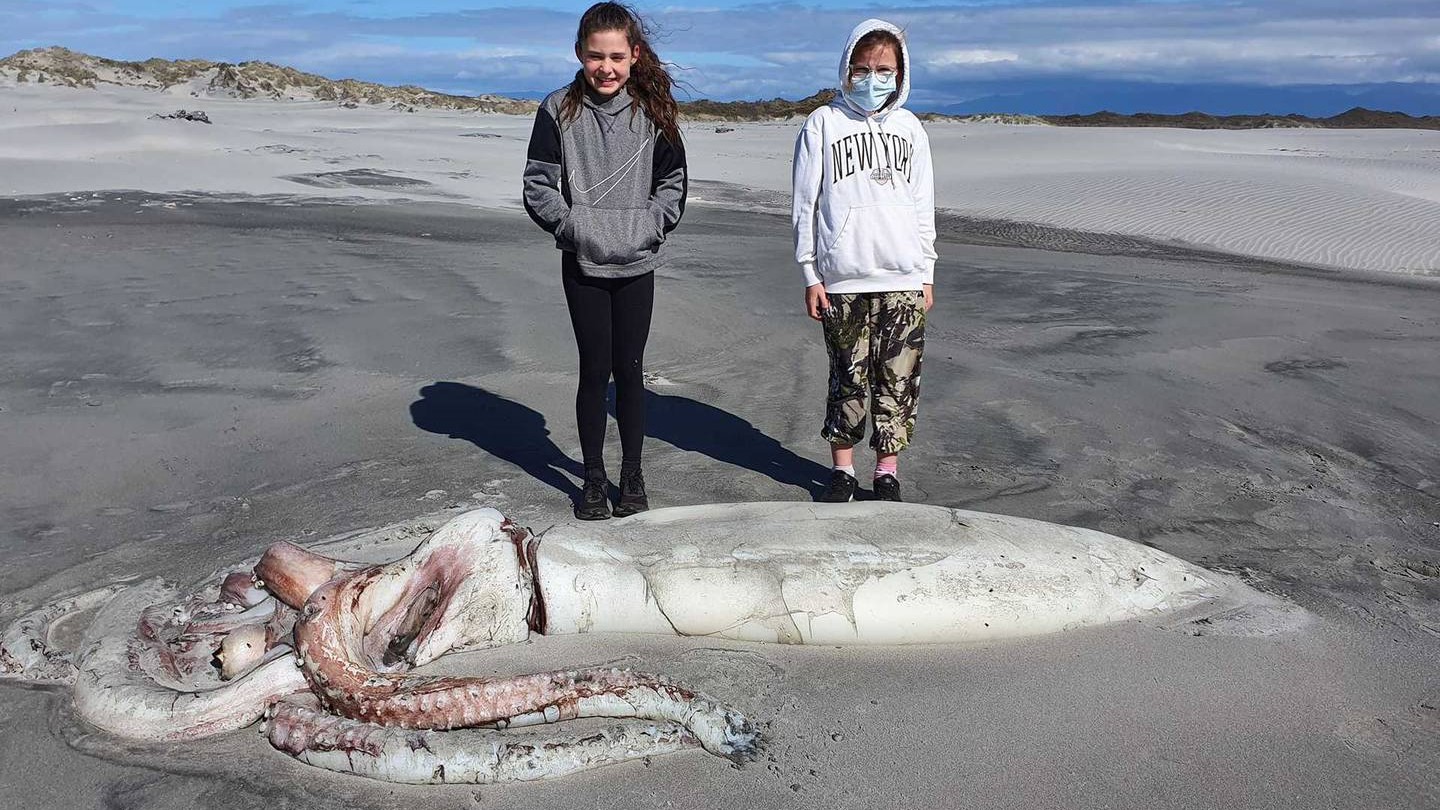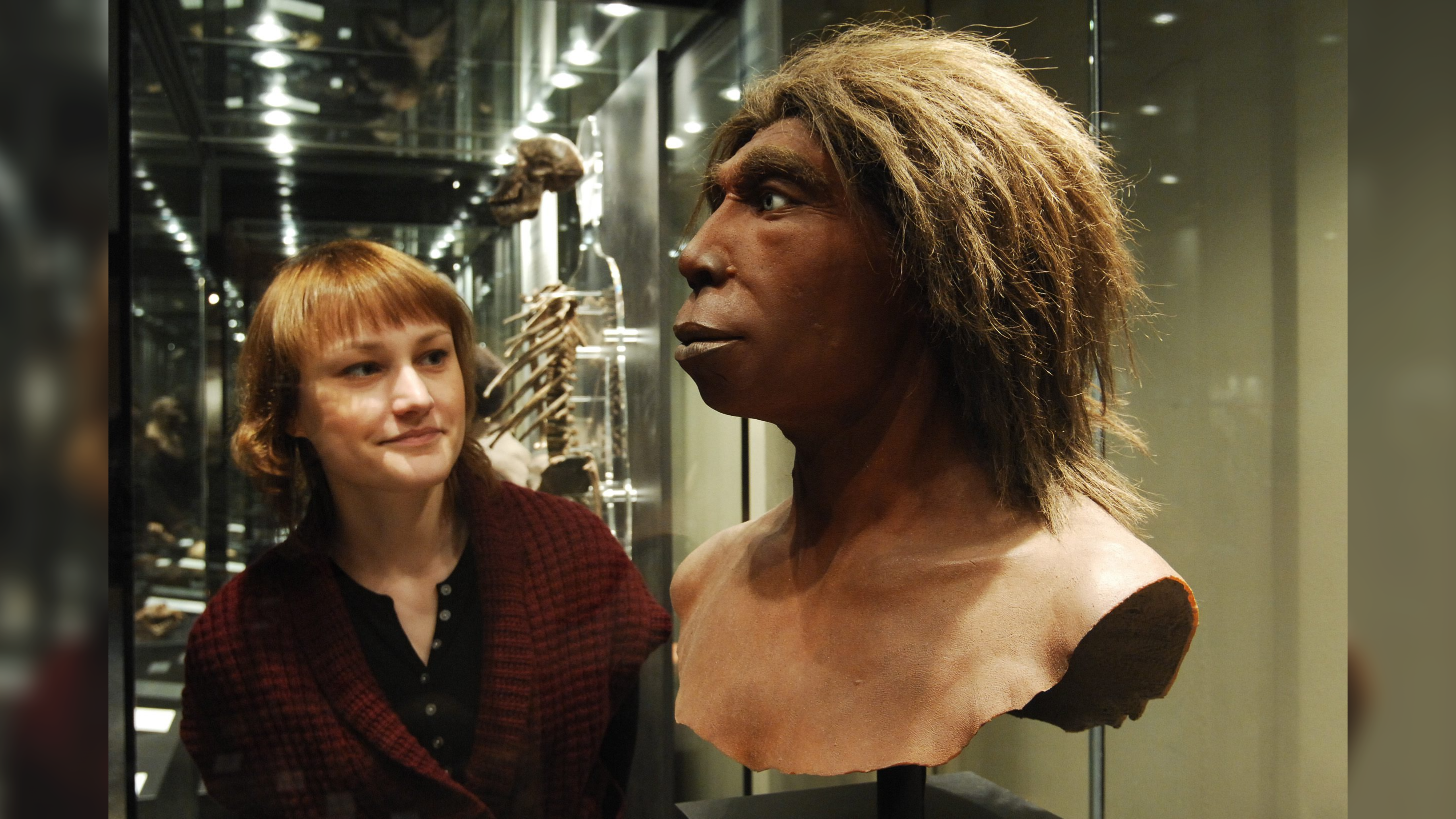Giant squid corpse with half-eaten tentacles stuns tourists on New Zealand beach
Experts called it a "once-in-a-lifetime experience."
Get the world’s most fascinating discoveries delivered straight to your inbox.
You are now subscribed
Your newsletter sign-up was successful
Want to add more newsletters?
Join the club
Get full access to premium articles, exclusive features and a growing list of member rewards.
One of the deep sea's most elusive and spectacular creatures, the giant squid (Architeuthis dux), recently astonished a group of tourists after it washed up as a half-eaten corpse on a New Zealand beach. A tour guide who was leading the group at the time described the chance finding as a "once-in-a-lifetime" experience.
The colossal cephalopod, with a mantle measuring around 13 feet (4 meters) long, was discovered Sept. 9 on the beach at Farewell Spit, a nature reserve in the north of South Island. A lone guide from the nature tour agency Farewell Spit Tours found the remains, which were half buried in sand, and quickly alerted a nearby tour group to come and take a look. After diverting to examine the squid's corpse, the group spent time marveling at the amazing animal and snapping photos next to the rare remains.
"It's not a common find on any beach, so if you're able to be there at the right time, it's a once-in-a-lifetime opportunity," Anton Donaldson, the Farewell Spit Tours guide who was leading the group, told The New Zealand Herald. But it was also sobering to see such a "magnificent example of a large sea creature" dead on the land, he added.
Giant squids are the second-largest squids in Earth's oceans — dwarfed only by the colossal squid (Mesonychoteuthis hamiltoni) — and can measure up to 43 feet (13 m) long. The hefty cephalopods, which are thought to be the real-life inspiration for the massive mythological sea creature known as the "kraken," live in deep water more than 2,950 feet (900 m) below the surface and are rarely seen in the wild.
Related: Beached sperm whale in Australia shows scars from tussle with a giant squid
It is unclear exactly how long the dead squid's entire body measured, because most of its tentacles were incomplete or buried beneath the sand.
"It looked like [the tentacles] had been chewed back by some other sea creatures, such as small sharks or fish," Donaldson said. "While I don't know for sure, I imagine it had been floating out there for a period of time and had washed up."
Get the world’s most fascinating discoveries delivered straight to your inbox.
The tour company informed New Zealand's Department of Conservation about the beached squid, and the agency will likely attempt to retrieve the remains so they can be studied, according to The New Zealand Herald.
Seeing a giant squid up close may be a "once-in-a-lifetime" experience for most people, but this isn't the first time that remains of the deep-sea giants have beached on Farewell Spit's shores. In total, at least six dead giant squids have washed up on the beaches of the nature reserve in the last 30 years, a Farewell Spit Tours representative told Live Science in an email.
In 2019, on the same part of the beach, another tour group came across a fully intact giant squid measuring 18 feet (5.5 m) long, Farewell Spit Tours representatives said in a statement at the time of the incident.
South Africa is another location where dead giant squids are known to wash ashore. In April, an 11.5-foot-long (3.5 m) specimen washed up near Kommetjie, and in August, a 14-foot-long (4.3 m) squid was found on a beach near Cape Town.
Originally published on Live Science.

Harry is a U.K.-based senior staff writer at Live Science. He studied marine biology at the University of Exeter before training to become a journalist. He covers a wide range of topics including space exploration, planetary science, space weather, climate change, animal behavior and paleontology. His recent work on the solar maximum won "best space submission" at the 2024 Aerospace Media Awards and was shortlisted in the "top scoop" category at the NCTJ Awards for Excellence in 2023. He also writes Live Science's weekly Earth from space series.
 Live Science Plus
Live Science Plus












